There are plenty of great tools on the market to help you achieve your SEO goals faster.
Which makes it difficult to pick the right ones for your business.
Avoid wasting time and money. Here’s a comprehensive list of the best SEO software.
The Best Free SEO Software
Free software is a great place to start. You can learn more about SEO before investing in more powerful tools that can drive even bigger results.
These are some of the best free SEO tools available:
1. Semrush (Free Account)
A free Semrush account offers plenty of features to make it easier to plan, run, and measure your SEO campaigns.
You can research keywords, generate new content ideas, schedule posts, get content optimization recommendations, and more.
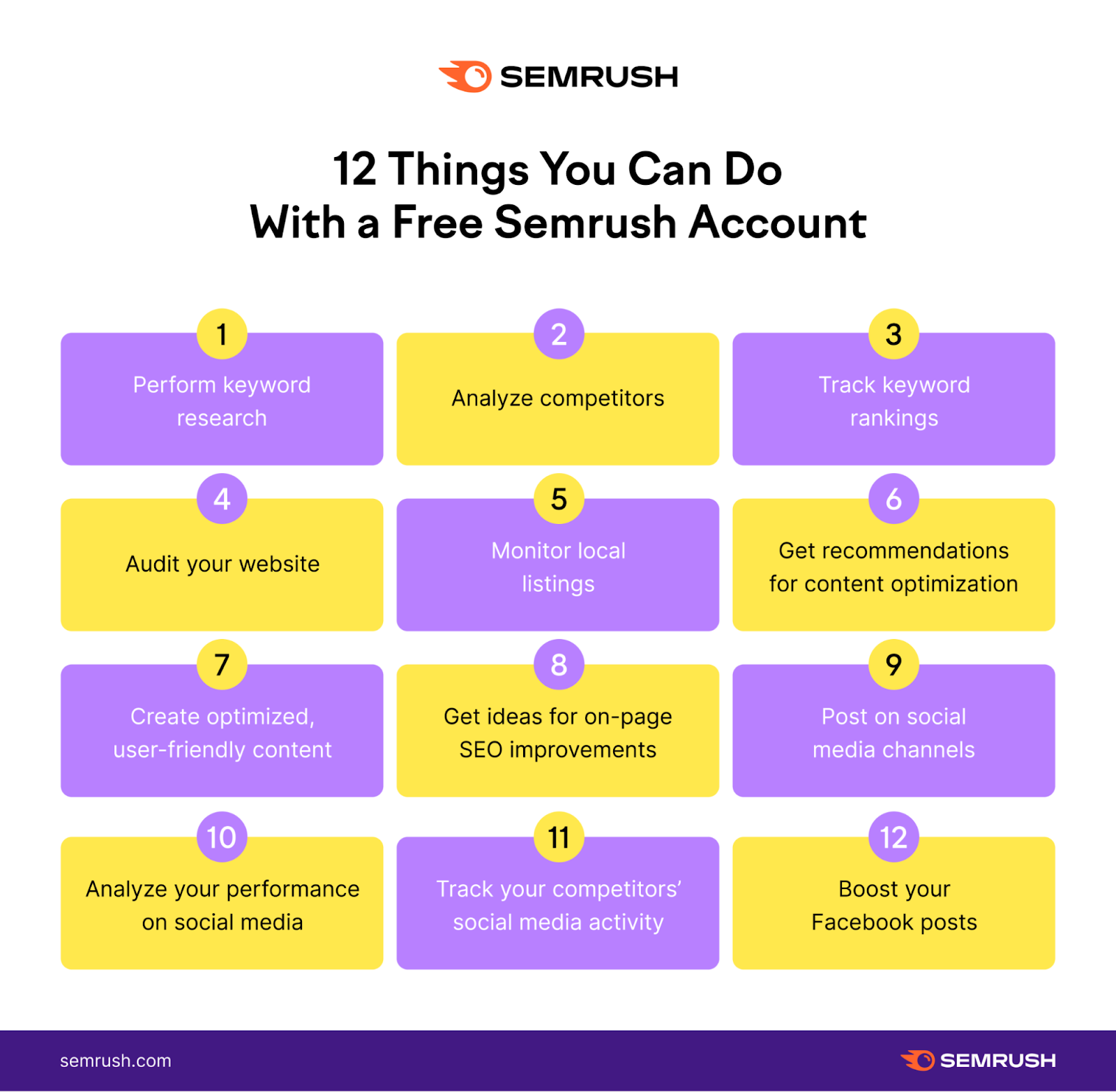
Create a free account to either run a small SEO project or just test the waters. Alternatively, start a free trial for more searches and features.
Notable features: You can carry out:
- Keyword research
- Competitor analysis
- Local listing audits
- Social media activities
And all from a single interface.
Further reading: See a full explanation in our guide on how to use a free Semrush account.
How this software can help your business: The free version of Semrush is a great all-in-one SEO tool for running small campaigns.
Short on time? It can make you more efficient because you won’t need to switch apps every few minutes.
Cost: Free users can make up to 10 Analytics searches per day, create and manage one Project, and track 10 keywords in Position Tracking.
Further reading: Check out our list of the 53 best SEO tools.
2. AnswerThePublic
AnswerThePublic is a keyword research tool that uses search engines’ autocomplete suggestions to find questions people ask online.
Businesses can use it to inspire content (like blog posts, landing pages, or videos) that solves their ideal customers’ problems.
Imagine you run a pet store. You could search “ beds” to see what your target audience wants to know about them.

The tool returns a wheel of questions. These are organized into types and color-coded by search volume.
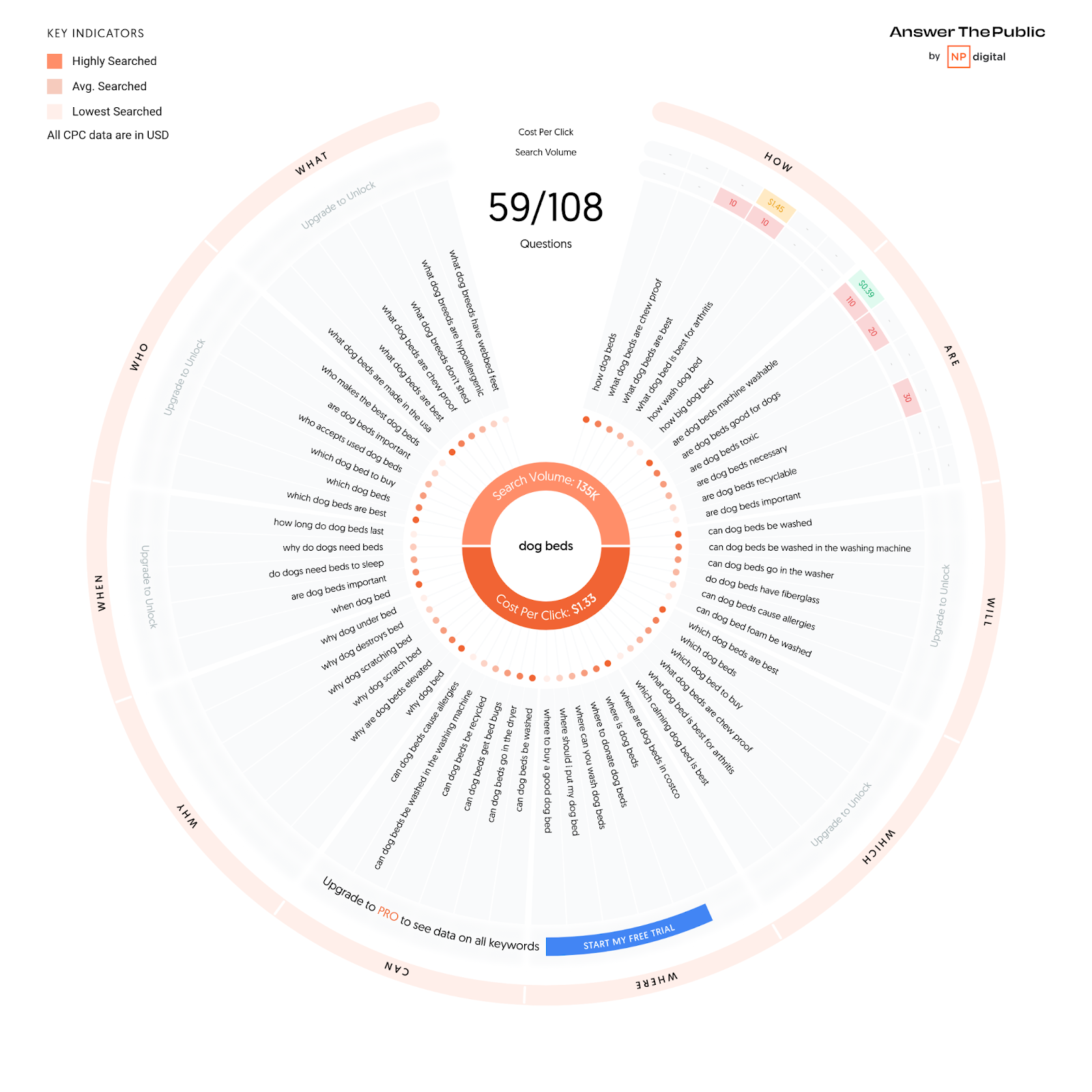
You could choose the questions people ask the most to guide your content strategy.
How?
By creating standalone pieces for each query. Or weaving multiple answers into a detailed guide.
In this example, people want to know about washing beds. A guide on the best ways to clean beds could work.

Notable features: Access data on various types of search queries, including those containing:
- Questions (e.g., “will,” “what,” and “how”)
- Prepositions (e.g., “with,” “without,” and “for”)
- Comparisons (e.g., “versus,” “or,” and “like”)
How this software can help your business: Use free daily searches to keep up with market trends and inspire topical content that resonates with your audience.
Cost: A free account allows three searches per day.
3. ChatGPT
ChatGPT is an AI chatbot you can use to speed up various SEO and content marketing processes.
It uses natural language processing (NLP) to respond to users’ prompts in conversational language.
You can ask it to:
- Generate content headlines based on keyword ideas
- Build article outlines for writers
- Write entire articles or sections
- Proofread your content
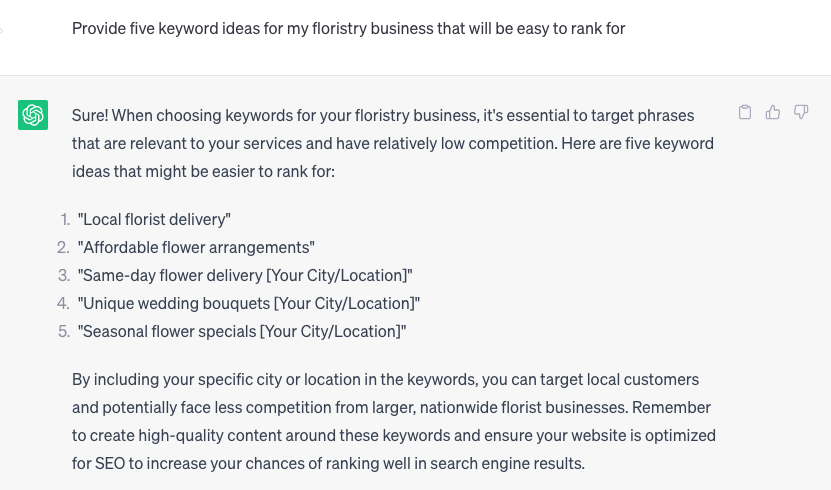
It’s also useful for some non-writing SEO tasks. Like assessing keyword relevance, generating basic code, and explaining complex topics in simple terms.
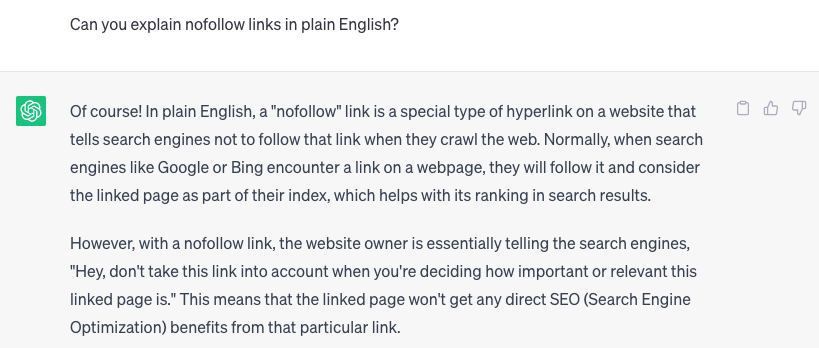
Important: ChatGPT is constantly evolving and may provide inaccurate responses to some prompts. Always edit AI-generated copy carefully. Double-check keyword suggestions in a tool like Semrush.
Notable features: Users can refine the results by:
- Regenerating ChatGPT’s responses
- Adjusting prompts retrospectively
Ideal for when the tool doesn’t fully understand a question.
How this software can help your business: People are discovering new ways to use ChatGPT daily. Experiment with different prompts to see how it can support your SEO processes. Save the most successful for future use.
Cost: Free
Best SEO Software from Google
We all know Google dominates search. So, it’s smart to use its proprietary SEO software to gain access to the most insightful, up-to-**** data on your campaigns.
Below are three of the most useful Google SEO tools:
1. Google Analytics (GA)
Google Analytics 4 (GA4) connects to your website to provide accurate information about how it performs in paid and organic search.
For example, in the screenshot below, you can see that 58,000 new users visited the site between January 17 and February 13. It also shows the total revenue the site generated ($79,000) in that period.
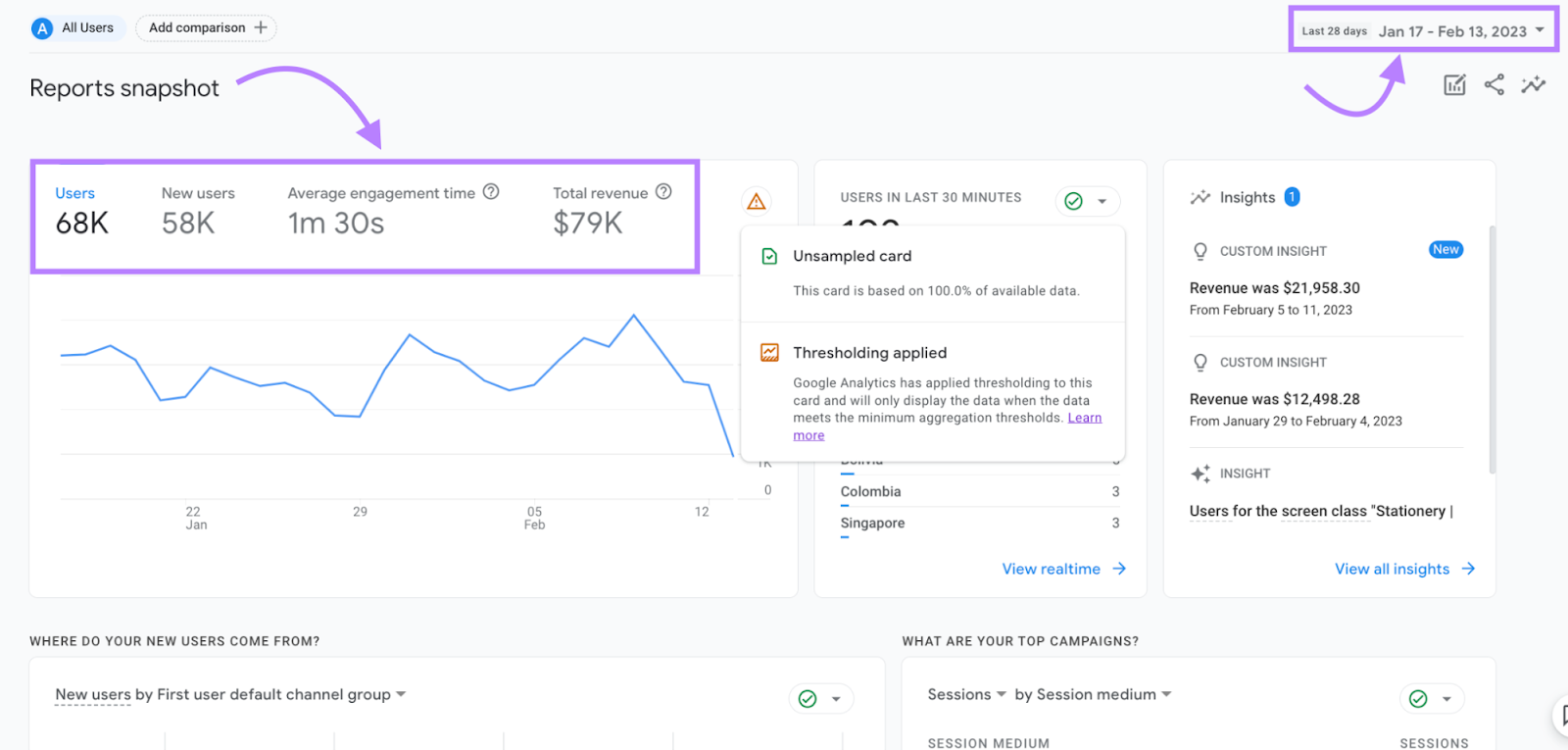
That information (much of which is only on GA) is essential for measuring the effectiveness of your SEO campaigns. Or even one-off changes to your site geared toward improving traffic.
Tip: Learn more about GA’s latest version, GA4, on Semrush’s free GA4 course with SEO expert Jeff Sauer.
Notable features: GA4 lets you extract a huge amount of insightful data on:
- Users
- Sessions
- Page engagement
- Traffic sources
- And more
You can also implement Application Programming Interfaces (APIs) to collect data from various sources and integrate it with other Google products.
How this software can help your business: GA reports should guide your strategy. Use them to understand the effects of your actions, fix inefficiencies, and repeat winning patterns.
Cost: Free
2. Google Search Console
Google Search Console (GSC) is one of the best SEO tracking software out there. It monitors how your website appears on Google over a period of time. It also helps you fix indexing and crawling issues.
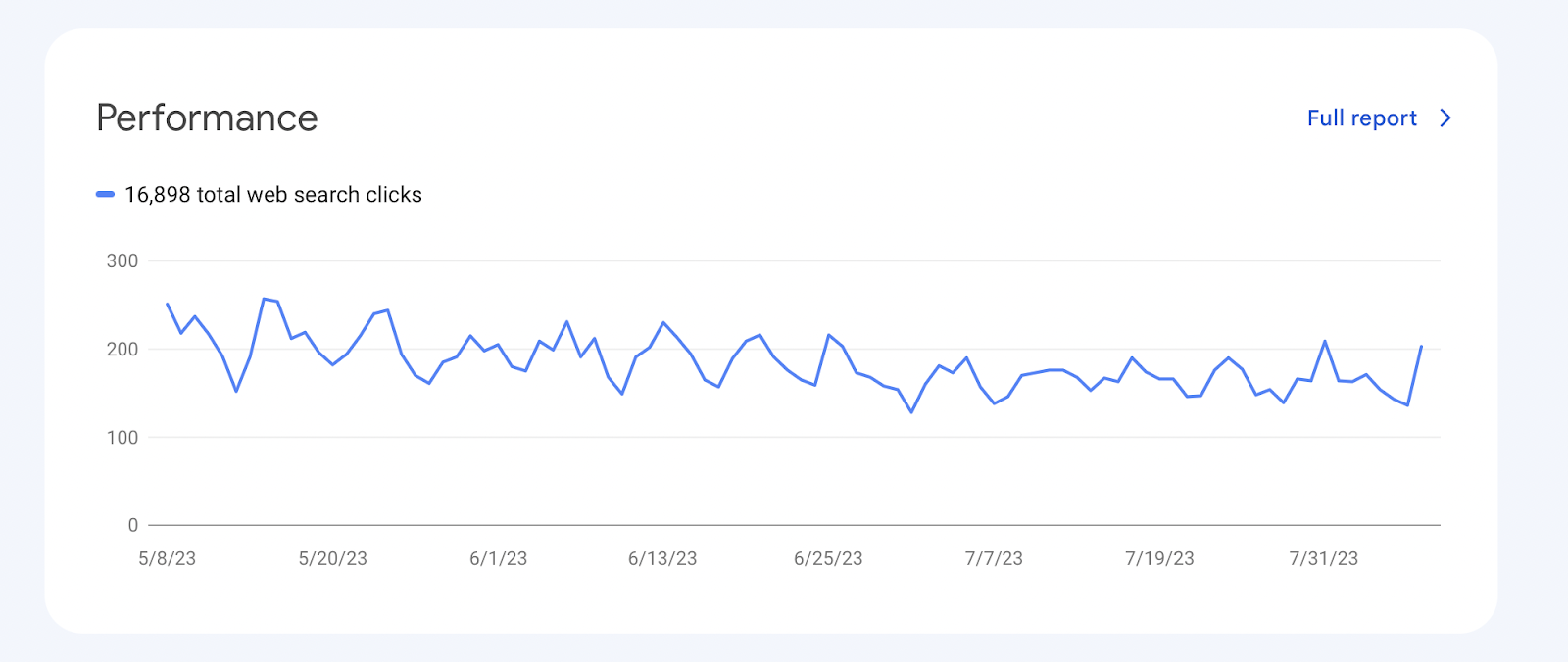
To help Google better understand your web pages, submit sitemaps and individual URLs for it to crawl. This gives your content a better chance to show up in search engine results pages (SERPs).
GSC, formerly Google Webmaster Tools, also shows you which search terms bring the most traffic to your site. That way, you can optimize your content accordingly.
For example: You see that most visitors look for information on “cat food nutrition.” You could create more content around that topic. Or target buyers with relevant Google Ads.
Notable features: GSC’s accessible reports:
- Make sense of technical search and SEO data
- Are easily shareable so you can keep colleagues and stakeholders up to ****
How this software can help your business: GSC is the easiest way to give Google the information it needs to see, understand, and rank your website. It shortens the time between when you publish content and when it shows up in SERPs.
Cost: Free
3. PageSpeed Insights
PageSpeed Insights analyzes your website’s performance and recommends ways to increase its speed.
Fast loading speeds improve the user experience (UX) and contribute to higher rankings. Google itself confirmed speed as a ranking factor a while back.
That makes PageSpeed Insights one of the best SEO ranking tools for your toolkit.
The analysis tool uses technical metrics called Core Web Vitals to gauge performance. It then gives an overall verdict on whether the site meets visitor expectations.
Here, the Semrush desktop site passes the assessment comfortably:
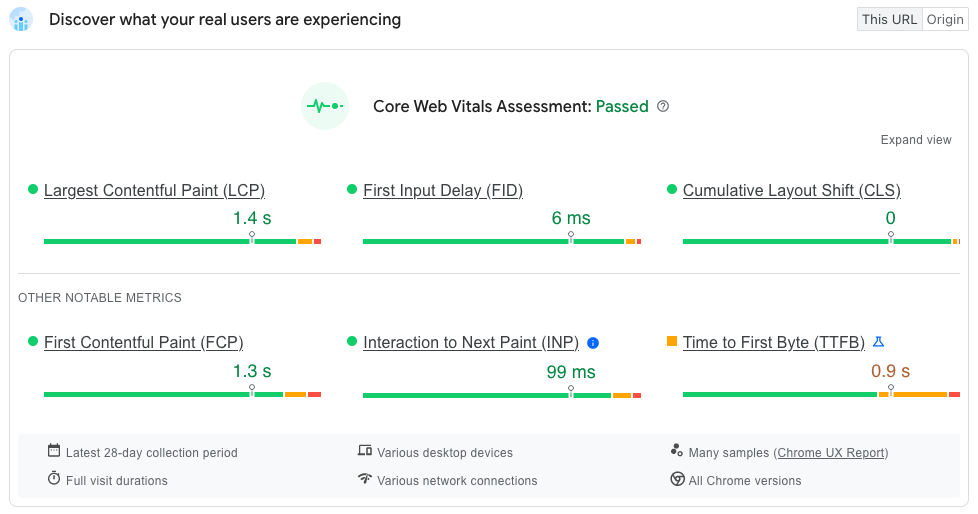
Check below the first dashboard for improvement opportunities.

Notable features:
- See improvement opportunities for mobile and desktop sites
- Freely check competitors’ URLs to see how you compare
How this software can help your business: PageSpeed Insights’ data and recommendations helpyou stay on top of site performance issues and maintain search performance.
Which means potential customers can easily find you online.
Cost: Free
Best SEO Software for Automation
Automation software boosts efficiency. It handles repetitive work like SEO audits, rank tracking, meta description generation, keyword research, and more.
These are some of the most useful SEO automation tools to consider:
1. Little Warden
Little Warden automates many of the website checks you should regularly make as part of your SEO efforts but don’t have time for.
It aims to prevent technical errors that can negatively impact search performance, like:
- Domain name expiration
- SSL certificate expiration
- Title and meta tag changes
- Robots.txt changes
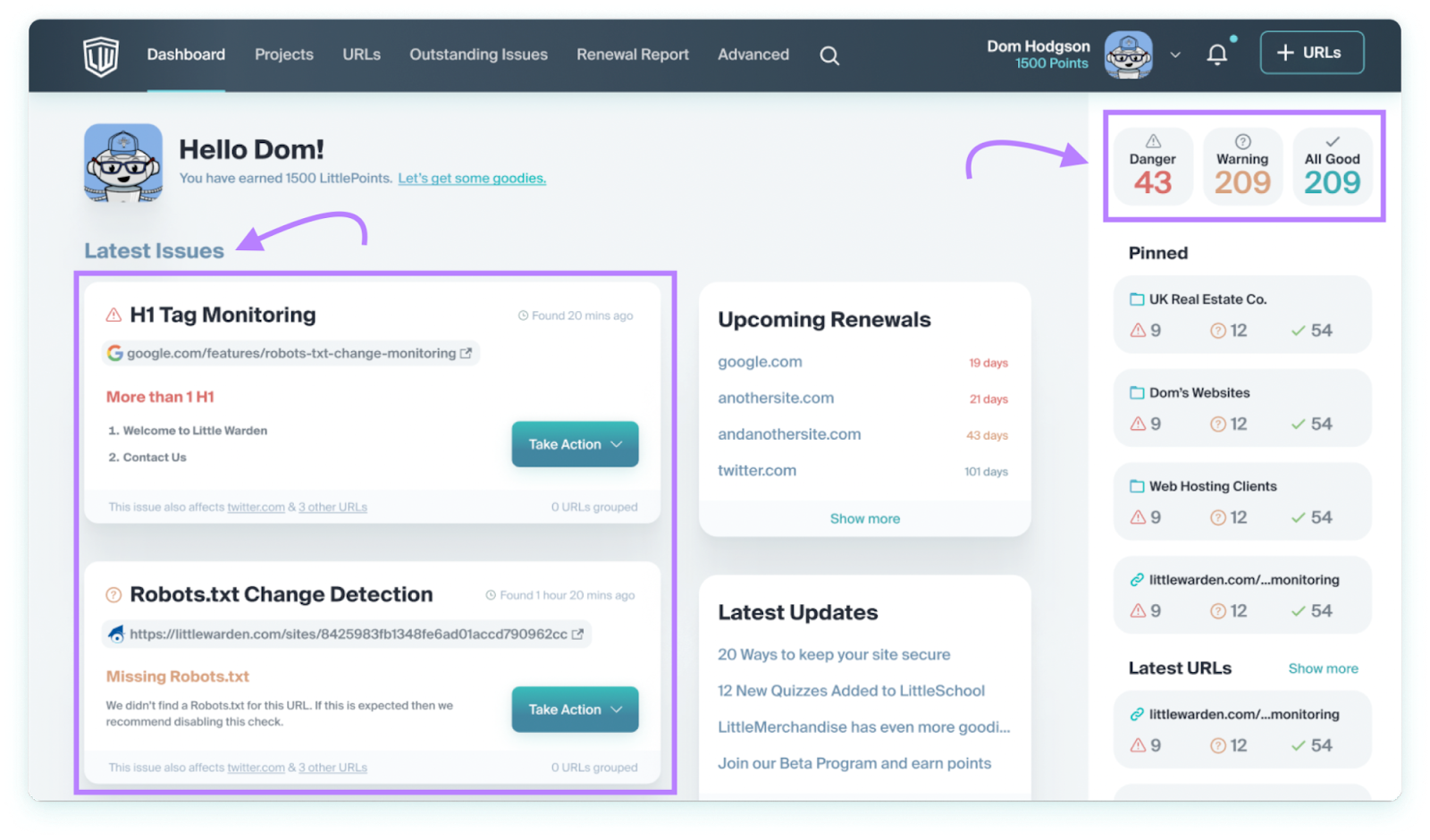
Manage more than one website? Whether it’s a portfolio of clients or in-house brands, Little Warden can help.
Notable features:
- An intuitive Wizard tool helps you set up automated checks on any website
- Receive updates for all changes or just specific ones
- Choose email, Messenger, Slack, or whatever communication channel works for you
How this software can help your business: The sooner you learn about a change or expiration that affects your website, the sooner you can address it. Minimizing disruption makes your business more visible online.
Cost: Plans start at $34.99/month for freelancers and go up to $199.99/month for large agencies. With two pricing options in between.
2. Site Audit
Site Audit is Semrush’s tool for automating your website’s technical health checks. It helps you quickly identify issues that might otherwise go unnoticed.
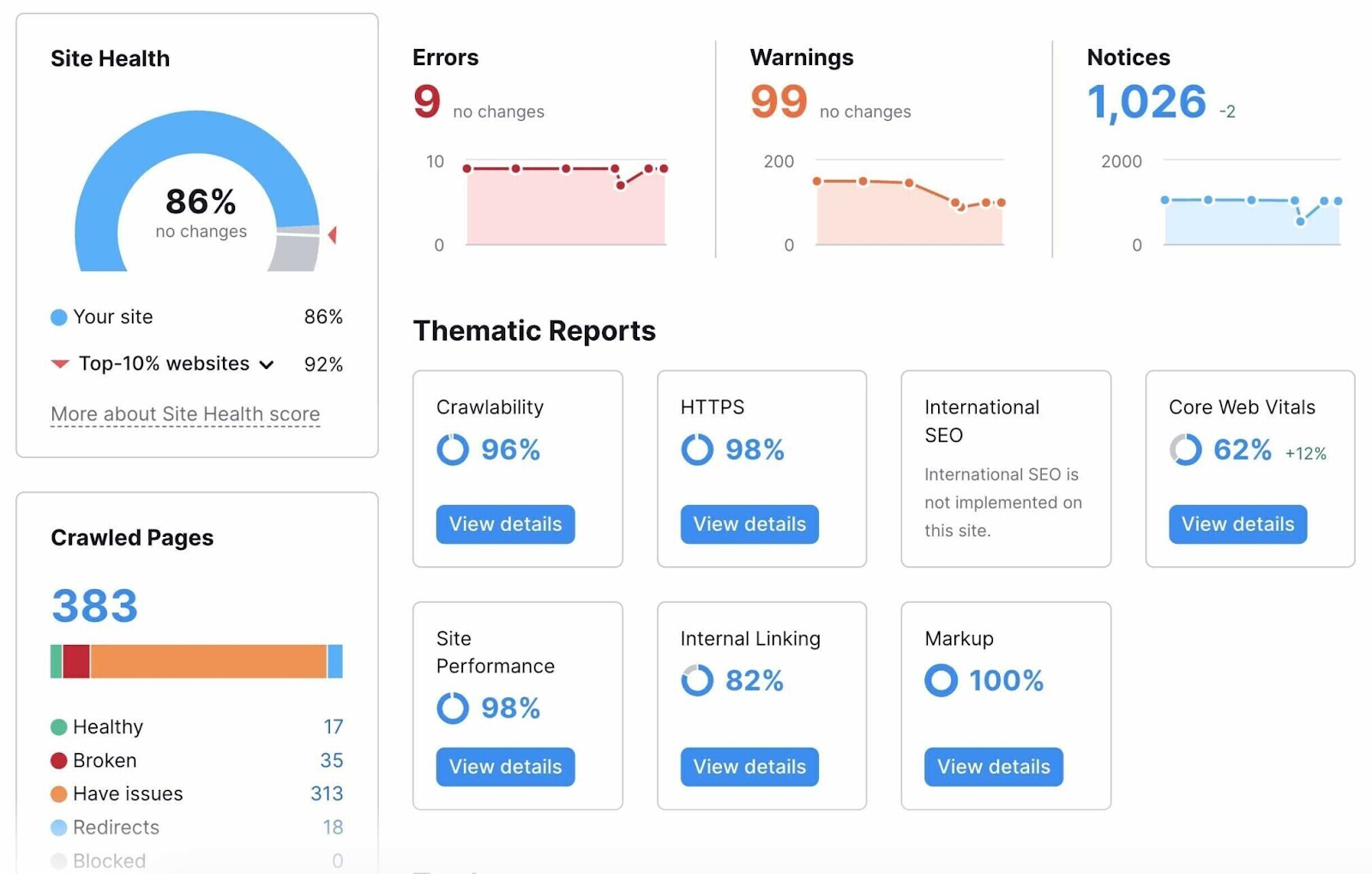
Set up your crawl to see a host of insights based on 130+ factors the tool measures against.
This SEO monitoring software gives you a prioritized list of issues and recommendations. So you can fix anything that hinders your SEO efforts.
Notable features:
- Simple, practical recommendations on site performance, security (HTTPS), crawlability, internal linking, etc.
- You can choose to receive daily, weekly, or monthly updates, as well as automated ones
How this software can help your business: Site Audit monitors your website’s health for you. That means you can spend more time implementing its recommendations, refining your SEO strategy, and chasing conversions.
Cost: Free for crawling up to 100 pages per audit (and 100 per month overall). Paid plans unlock between 100,000-1,000,000 pages per month.
3. Media Monitoring
Media Monitoring is another Semrush app. It continually checks the internet for other pages and posts that mention your brand or link to your site. You then get updates delivered to your inbox.
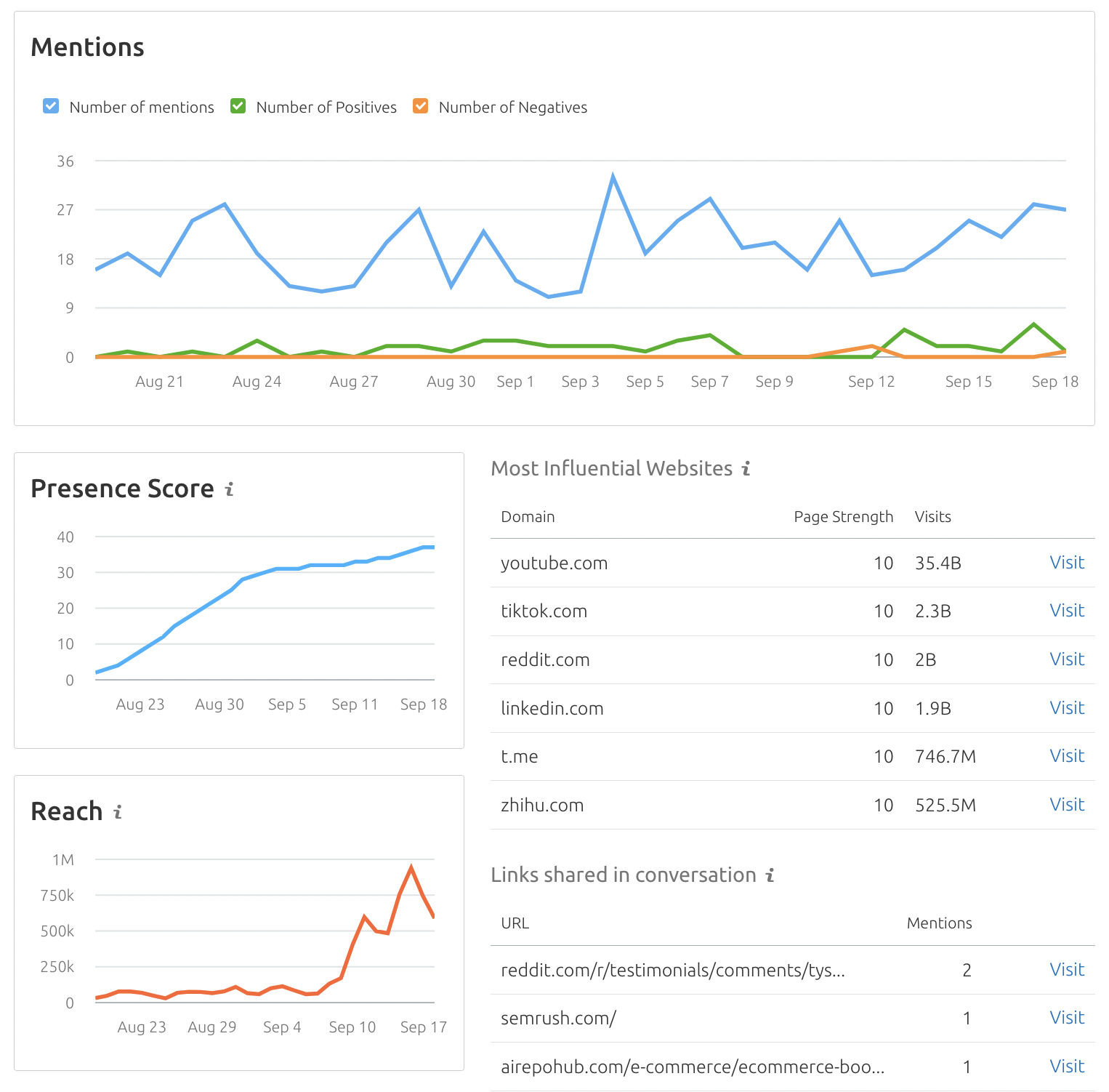
Use its reports to increase traffic to your site by:
- Engaging with positive coverage about your business
- Addressing negative coverage of your business
- Requesting that unlinked mentions add links to your site
Notable features:
- Easy-to-understand reports help you track your brand’s online reputation over time
- Set up alerts for blog, social media, news feed, forum, review mentions, and more
How this software can help your business: You’ll keep track of what people say about your brand online. Why? So you can respond accordingly, jump on new backlink opportunities, and optimize your brand reputation.
Cost: $39 per month (for tracking up to 2 keywords). A free trial is available.
Best Technical SEO Software
SEO software can streamline much of the technical work that goes into making a website visible on Google.
From building sitemaps and analyzing backlinks, to improving load times and optimizing your content for mobile devices.
Check out three of the best technical SEO tools to support your campaigns:
1. Backlink Analytics
Semrush’s Backlink Analytics tool allows you to check the backlink profile of almost any website in seconds.
Track link-building campaigns for your websites to see when new links appear online and existing links disappear. And check how much traffic other sites drive to yours.
Or carry out backlink analysis on your competitors. You’ll gather proven ideas and identify topics to avoid.
Simply type in your or your competitor’s URL and hit “Analyze.”
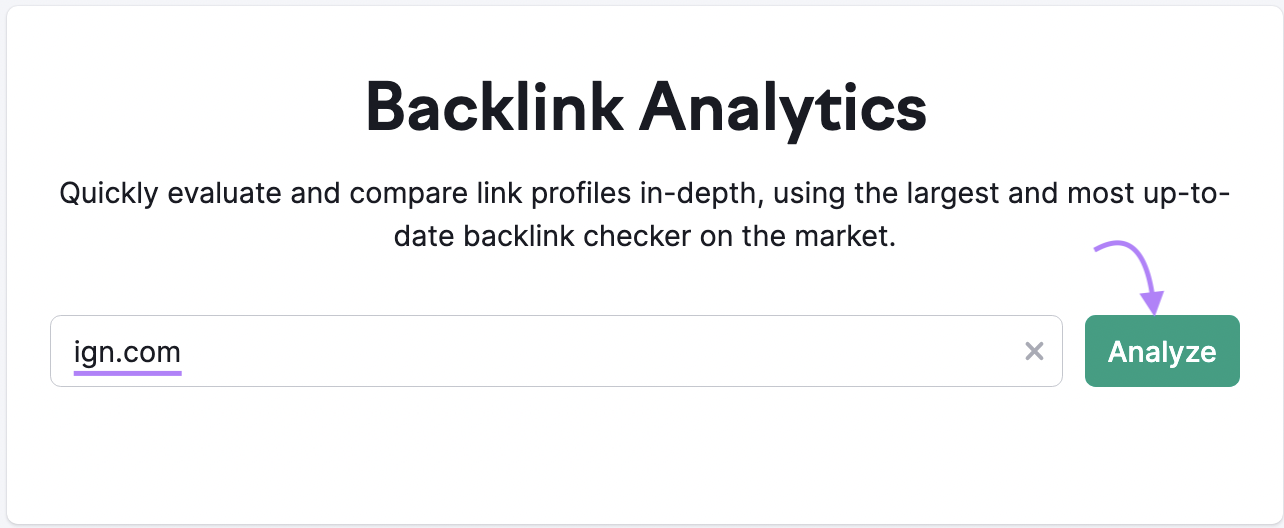
You’ll get a metrics-packed report indicating the results of your link-building efforts.
Like whether inbound links are up or down. Plus examples of the anchor text domains use when they reference you.
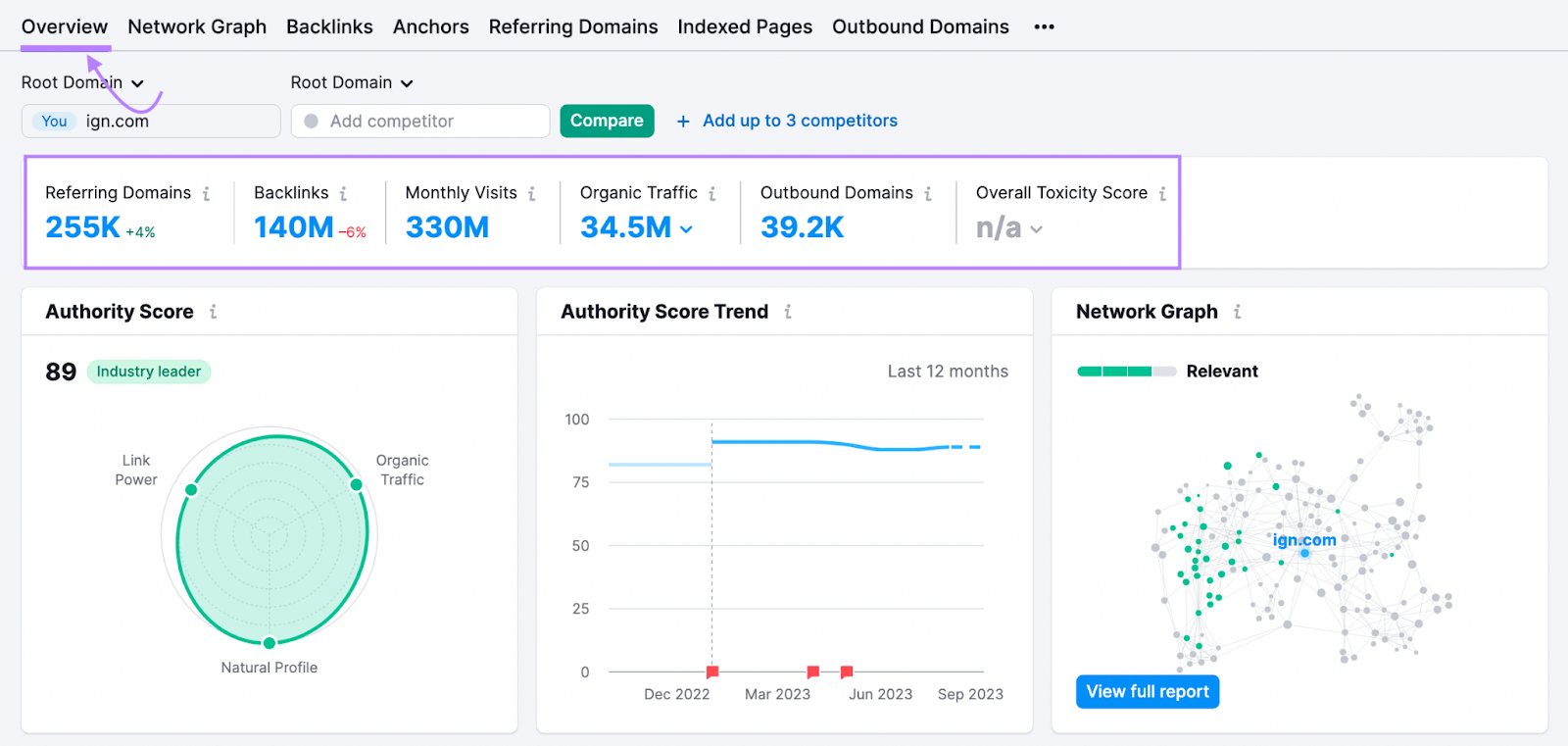
Notable features: Backlink Analytics’ Authority Score measures a domain’s reputability based on factors like:
- Backlink quality
- Organic traffic
- General authenticity
How this software can help your business: You will be able to spot and rectify issues with your backlink profile. Ensuring that this valuable traffic source works hard for your business.
Cost: Free accounts get 10 credits/day to use across this and other Semrush tools. Remove this limitation with a subscription or sign up for a free trial.
2. Screaming FrogSEO Spider
Screaming Frog’s SEO Spider is web crawler software for auditing common technical issues that could hinder your site’s search performance.
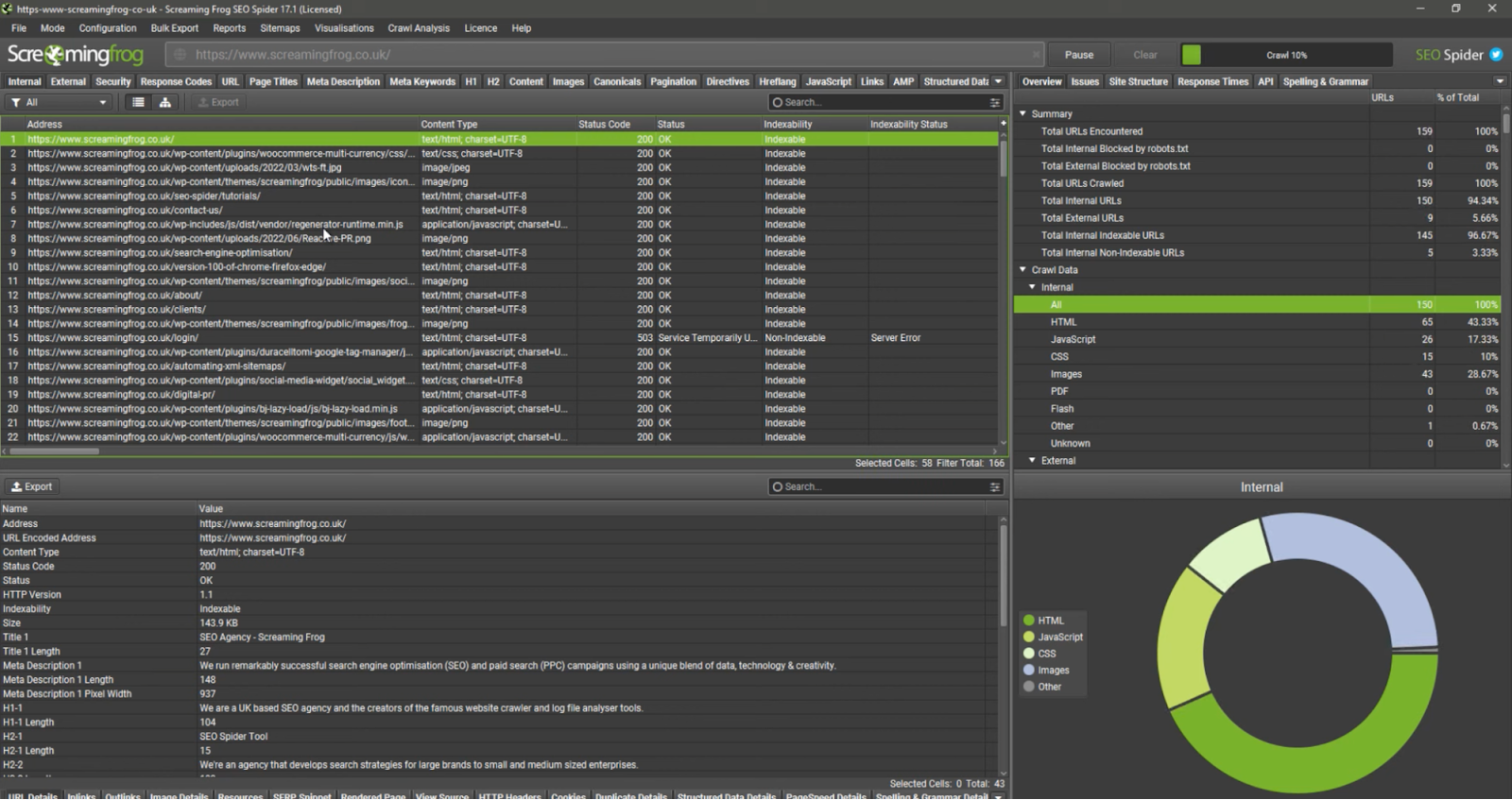
Many of the factors it checks are easy for humans to miss. Think:
- Faulty URLs, canonicals, and response codes
- Missing metadata
- Unsuitable image sizes
- Pagination errors
Notable features: Screaming Frog’s software:
- Crawls sites of all sizes efficiently
- Presents SEO metrics in real time so you can make informed decisions faster
How this software can help your business: Holistic site audits stop valuable content from becoming invisible in search engines because of avoidable errors. However, they need a lot of time.
Screaming Frog makes checking crawlability and fixing problems much faster and easier.
Cost: The Screaming Frog website offers free and paid plans with a detailed comparison. The biggest difference is the free account’s crawl limit of 500 pages. The paid version offers unlimited crawls at $259/year.
3. Yoast SEO (for WordPress)
Yoast SEO is a powerful SEO plugin for the WordPress content management system (CMS).
You can use it for basic on-page SEO actions. Like setting and editing title tags, slugs, and meta descriptions for your web pages—all important for strong search performance.
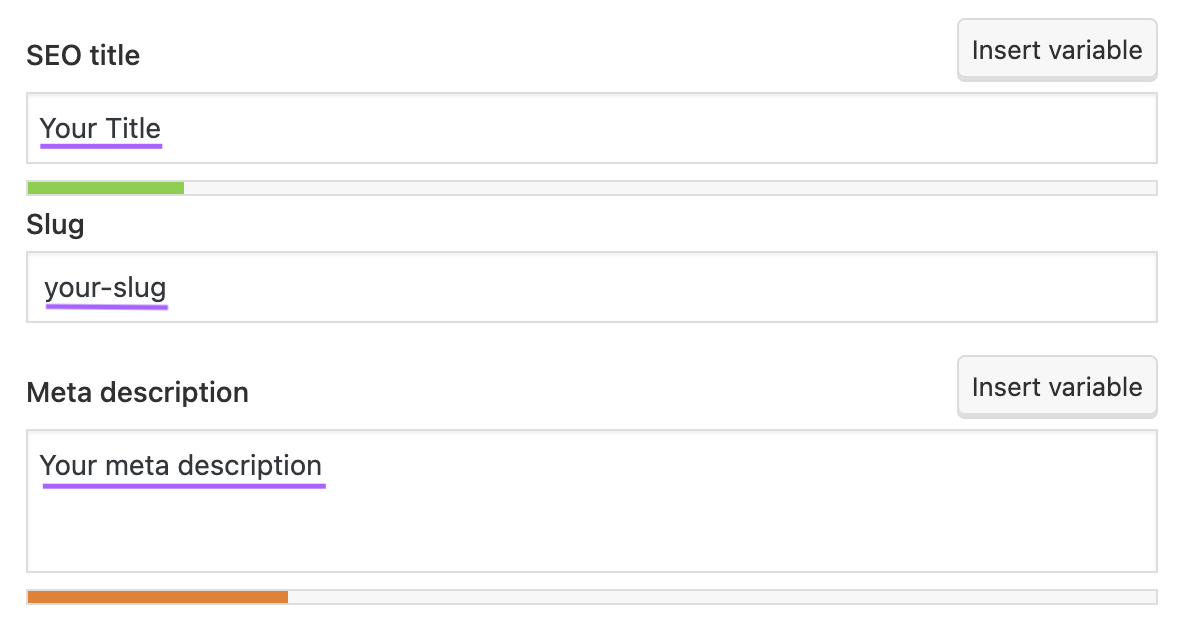
And you can use Yoast for more technical tasks like:
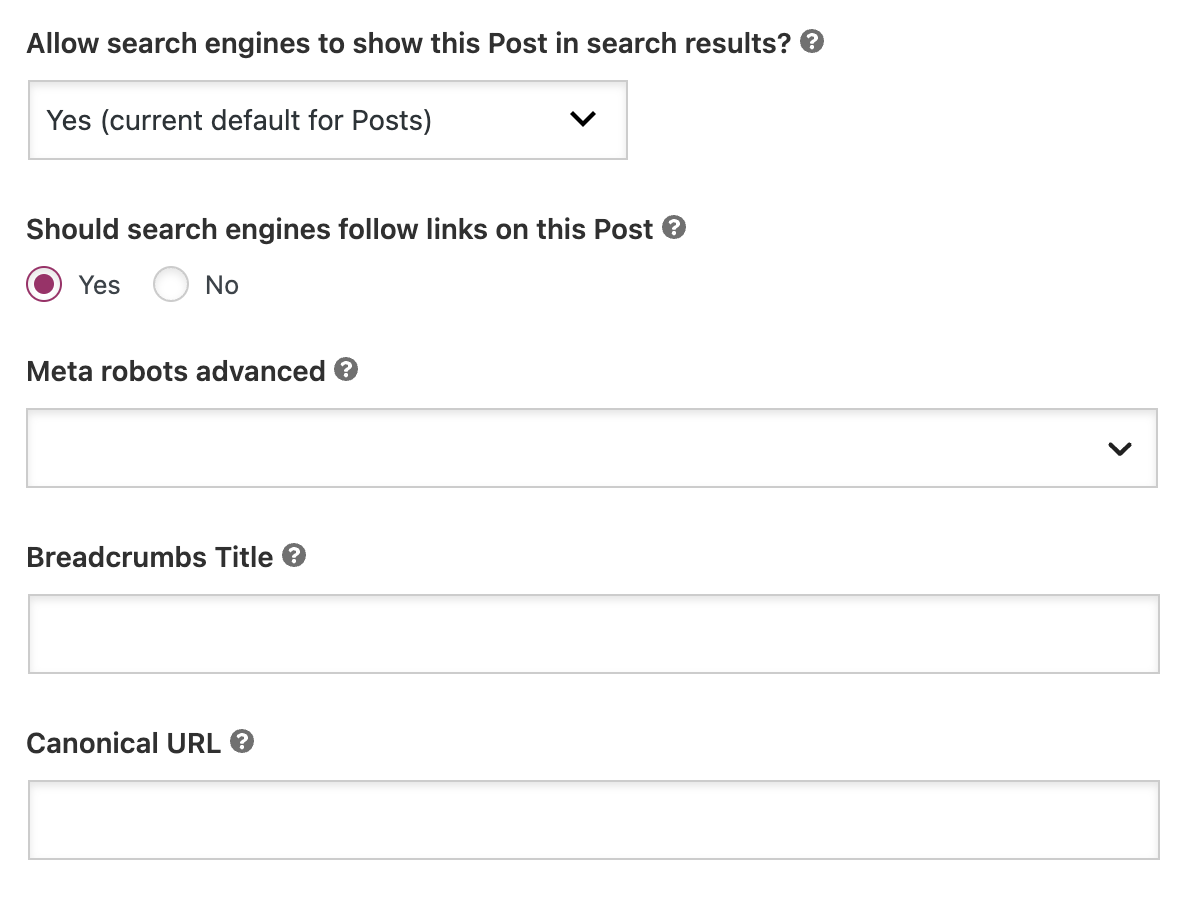
Further reading: Yoast is too comprehensive to explore in detail here. Check out our How to Use the Yoast SEO Plugin for WordPress to get all the deets.
Notable features: Yoast is a great SEO all-rounder that helps with:
- Keyword analysis and optimization suggestions
- XML sitemap generationMeta description and title tag optimization
- Content analysis
How this software can help your business: WordPress users get near-total control over their technical SEO efforts from a single, easily accessible location. The plugin saves time and reduces software spending—Ideal for small businesses.
Cost: Yoast provides a free plan with some limitations. There’s a “Premium” plugin for $99/year (excl. VAT).
Best SEO Content Software
Great written content underpins every successful SEO campaign. The following marketing tools will help you craft everything from blogs and landing pages to reports and ad copy.
1. SEO Writing Assistant
Semrush’s SEO Writing Assistant (SWA) analyzes and grades content in real time based on:
- Readability
- SEO
- Originality
- Tone of voice
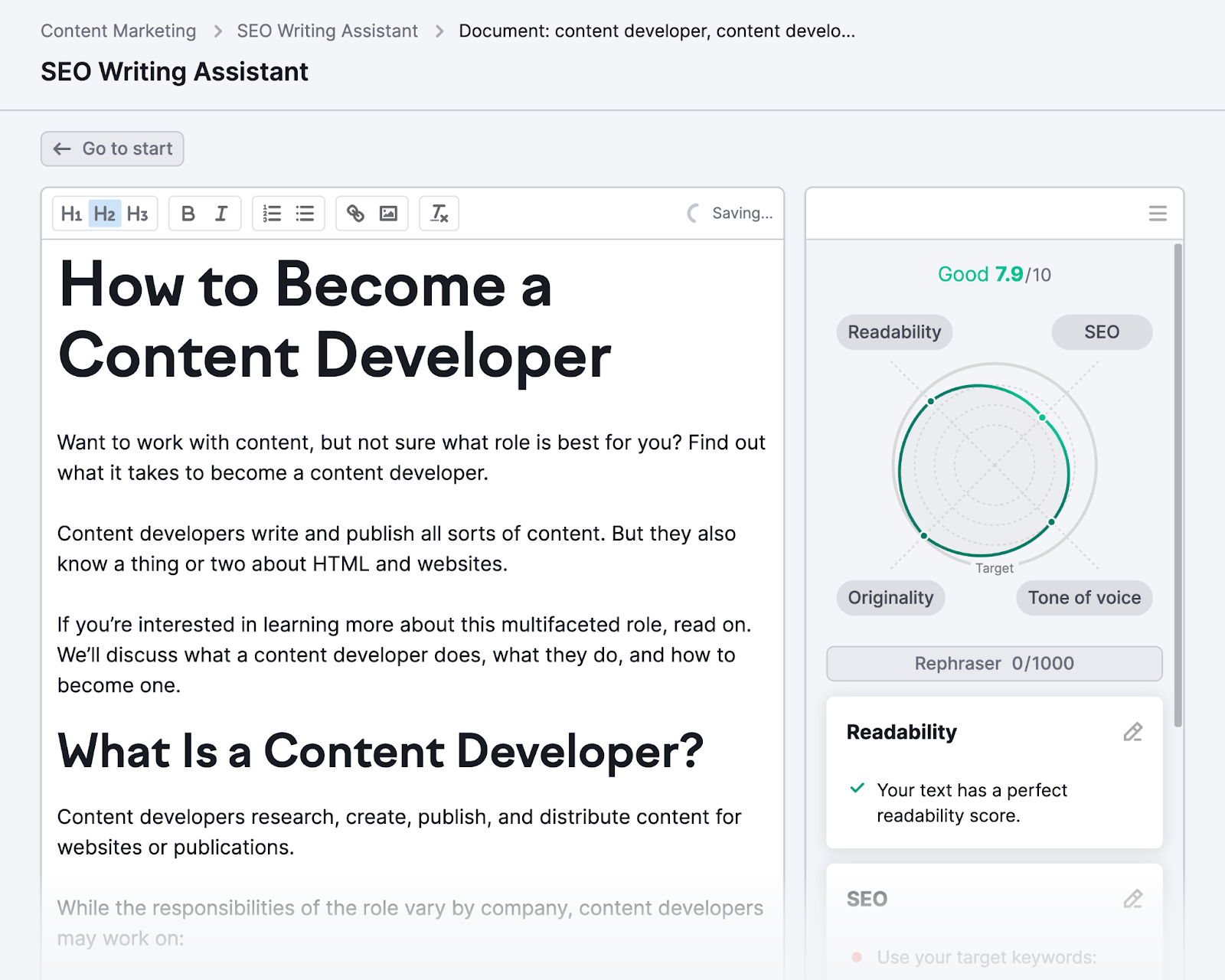
It also provides general recommendations to help you improve your content’s search ranking potential.
In this example text, SWA highlights a broken link:
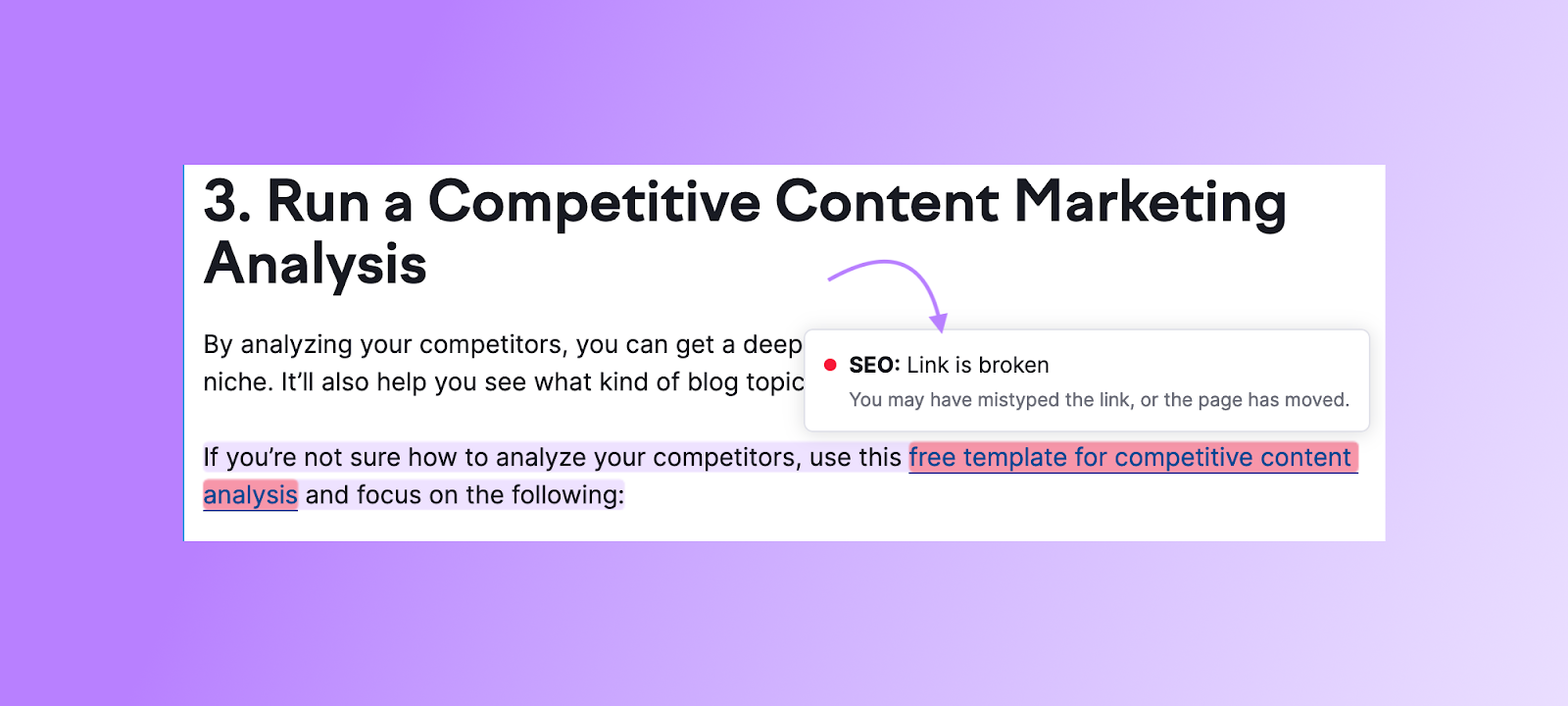
And some opportunities to be more direct:
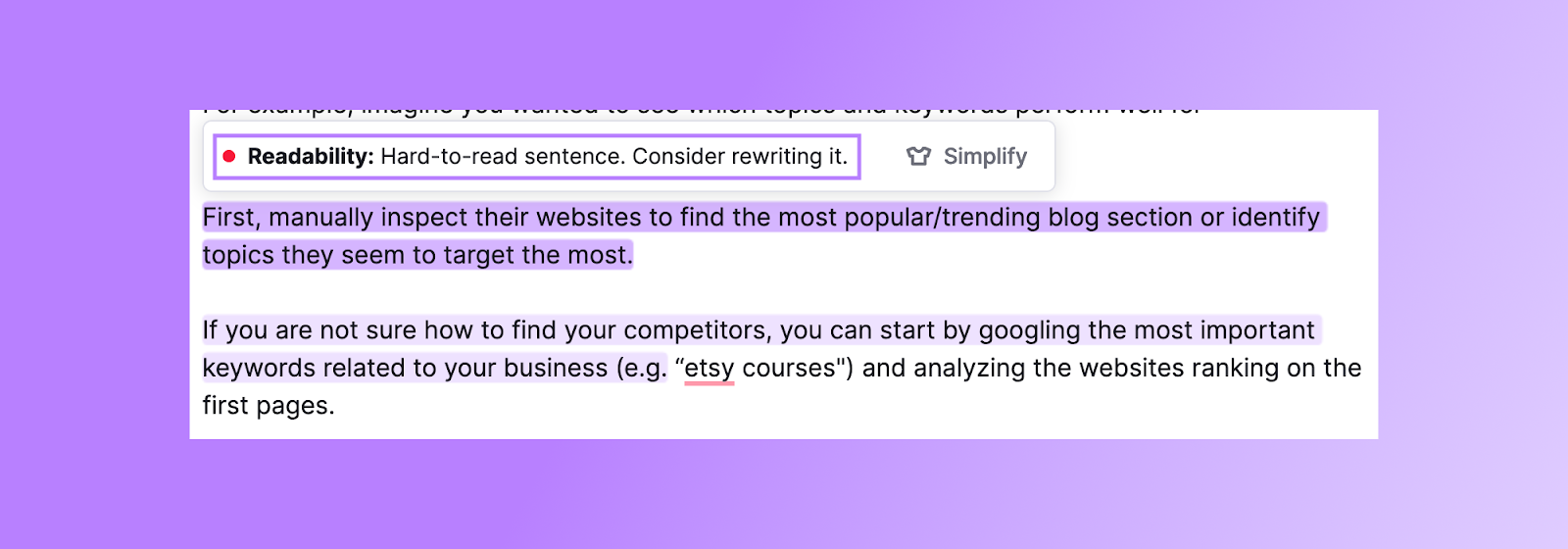
Write into the text box, copy and paste your work from elsewhere, or use the Google Docs add-on, WordPress plugin, or Microsoft Word add-on.
Notable features:
- SWA makes recommended changes using artificial intelligence (AI) to speed up content optimization further
- You can accept, reject, or even regenerate its suggestions
How this software can help your business: SWA removes lots of stress and overthinking from the writing process. Which helps you craft search-friendly content and easily optimize existing posts.
Cost: All Semrush users can access SWA (even free accounts). Find out more about each plan here.
2. Grammarly
Grammarly is a spelling and grammar checker that helps keep your content free of errors.
Notable features: It can also make recommendations around tone of voice and clarity to give you the best chance to connect with your target audience.
Like this:
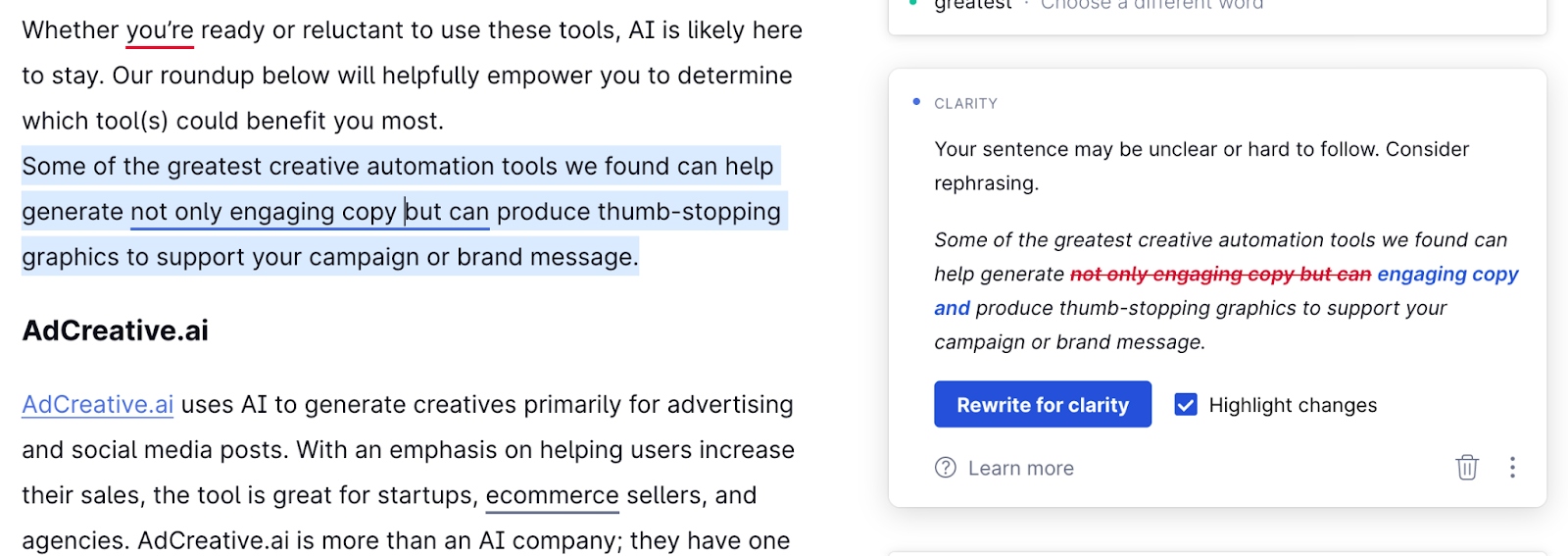
You can use it practically everywhere. There are web, desktop, and mobile Grammarly apps. Plugins for Google Docs and Microsoft Word. And Firefox and Chrome extensions.
How this software can help your business: Grammarly is all about creating highly readable, error-free written content. Accurate, clear, and polished communication will reflect well on any business.
Cost: Grammarly has a free version. Remove limitations with a Premium (from $12/month) or Business (from $15/member/month) plan.
Best Measurement SEO Software
Aside from Google’s staples (GA and GSC), you can use a few other brilliant tools to track search performance and measure SEO campaigns.
Here are our picks for the best SEO ranking software:
1. Position Tracking
Semrush’s Position Tracking tool lets you monitor your website’s (or a competitor’s) daily rankings for specific target keywords.
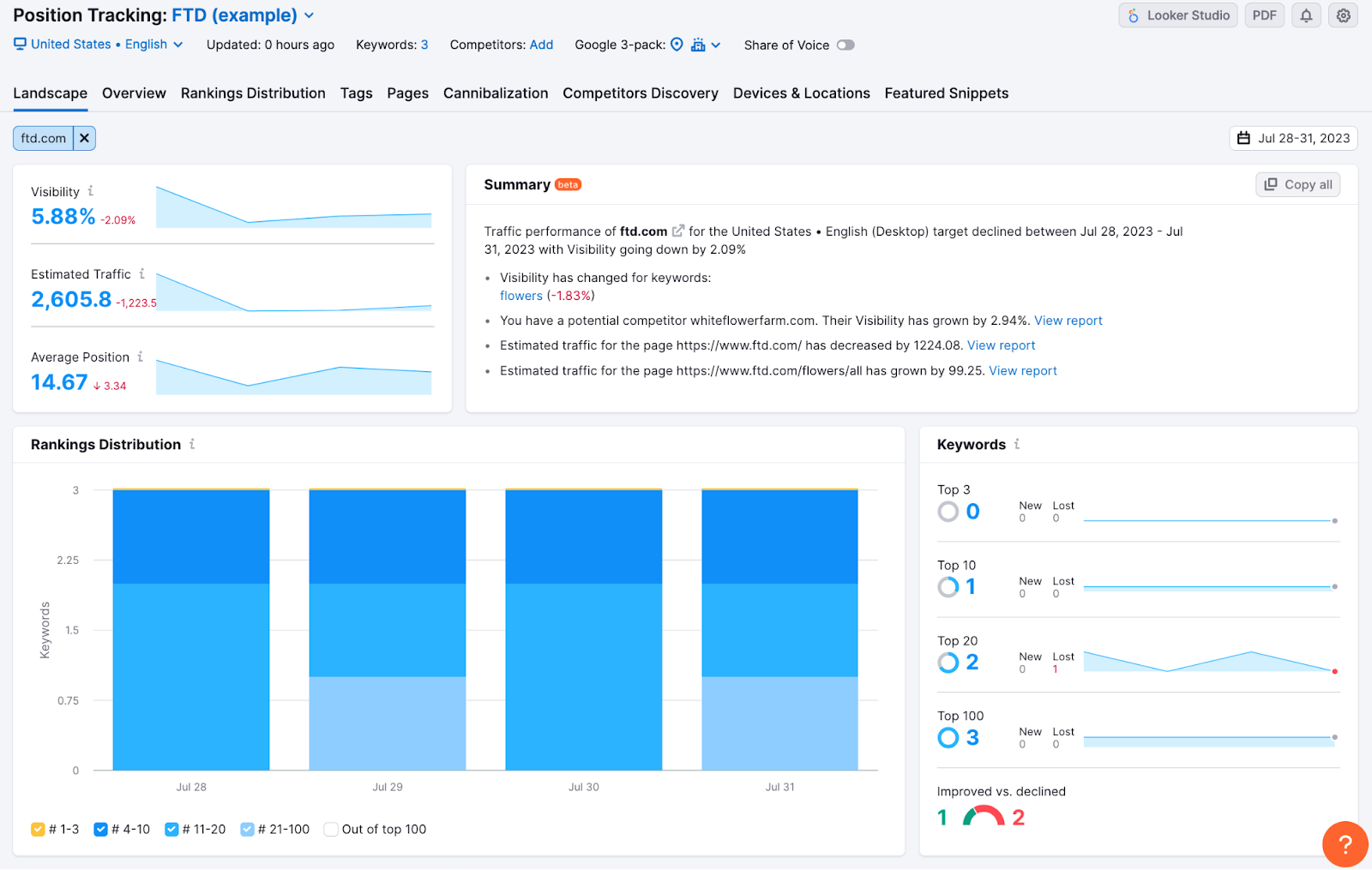
What else does this ranking tool for SEO do?
You can track positions for specific geographic locations and device types too.
For example:
You could focus on desktop rankings in your company’s newest market. Or check mobile performance after optimizing your website.
Notable features: Position Tracking helps digital marketers find the data they need for SEO reports with features such as:
- Tagging,
- Sorting
- Filtering
- Report exporting
How this software can help your business: See how your SEO efforts translate into ranking changes so you can learn from mistakes and repeat winning actions.
Cost: Track up to 10 keywords with a free account. Or remove these limitations with a paid subscription.
2. SplitSignal
SplitSignal is an SEO A/B testing tool from Semrush that helps you find ways to improve search traffic without disrupting your site.
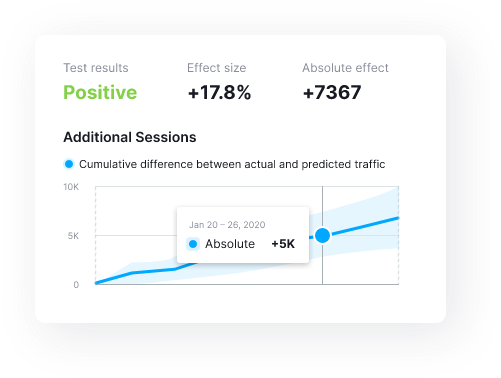
It lets you design and execute split tests using statistical ****** that accurately estimate the impact of any changes to your site.
How?
By testing tweaks to titles, meta tags, structured data, alt tags, and more.
Notable features:
- The tool allows you to scale successful tests to the rest of your website
- This allows you to implement changes faster and see results sooner
How this software can help your business: A/B testing is a valuable website optimization technique. But frequent changes can eat up resources and cause more harm than good. SplitSignal uses statistical modeling to eliminate risk and improve your SEO outcomes.
Cost: SplitSignal is currently available only by application. Fill out a request form to learn more.
Choose the Best SEO Software for Your Business
You need to pick affordable SEO software with enough functionality to make your campaigns smoother and more successful.
Many of the best SEO tools offer free trials. Use these to test different options.
Pro tip: Check out How to Choose the Right SEO Software for Your Business for additional guidance.
Here are the answers to some common SEO softwareFAQs:
1. What key features do you need in SEO software?
Different SEO tools suit different business needs. But as a general rule, look for:
- Keyword research features
- Website crawlers for SEO audits
- Link-building analytics
- Flexible, tiered payment options
A free trial can help you decide if a piece of SEO software will fit your company.
2. What is SEO SaaS?
SEO SaaS (software as a service) refers to cloud-based tools that help businesses to:
- Optimize their websites for search engines
- Improve visibility in search engines
- Enhance their online presence
Cloud platforms differ from on-premise applications, where the user hosts the hardware, software, and data on their physical premises.
3. Can I do SEO on my own?
Absolutely! All-in-one SEO toolkits like Semrush help business owners and marketers at all levels to plan, implement, and measure SEO strategies and campaigns.
Check out the Semrush blog to learn the basics of SEO, PPC (pay-per-click advertising), content marketing, and more.
4. How can I practice SEO for free?
Semrush’s free version and free trial are perfect for anyone new to SEO. Our interface is easy to use and offers plenty of straightforward guidance to help you learn.
Create your Semrush account today to get access to 55+ SEO, PPC, social media, content, and market research tools.
Source link : Semrush.com
